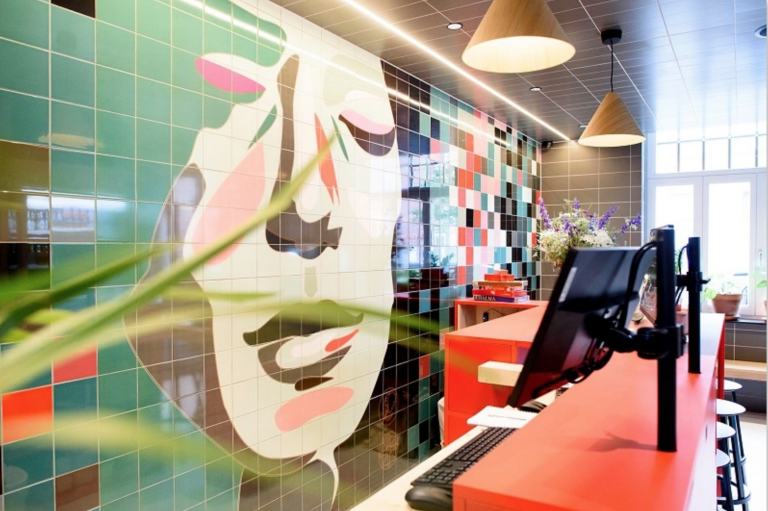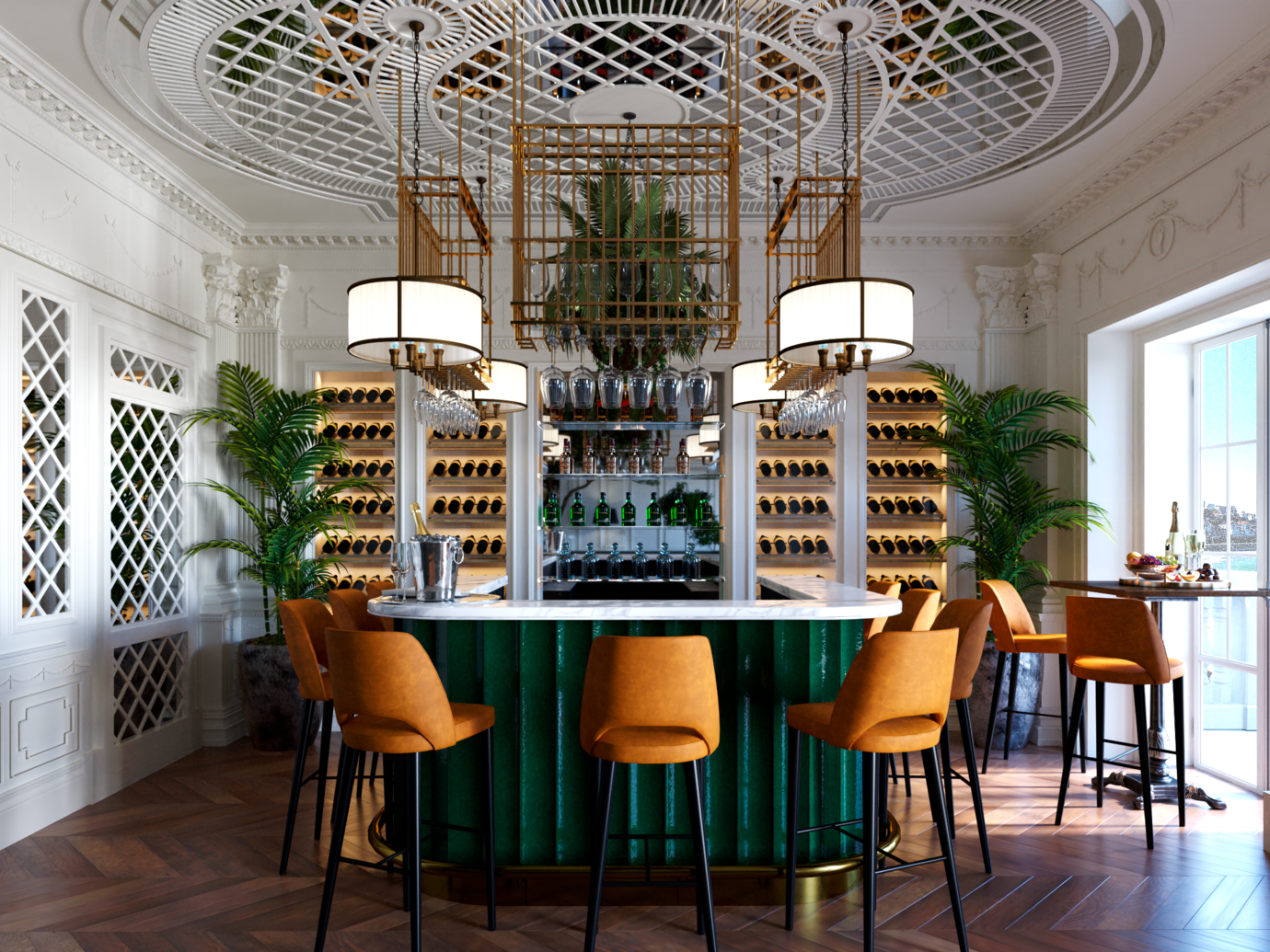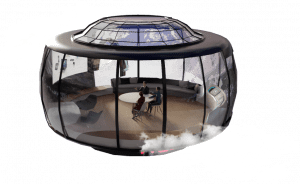For many people, starting their own boutique hotel or luxury bed and breakfast is like a dream. Most are drawn by the charm of hospitality and see it as a chance to start a new beginning. But opening a hotel business, just like any new company, is more difficult than it might seem at first sight.
Particularly if you have never worked in the international hotel industry, you will be faced with many things you might have not considered or imagined before. The hotel business is highly competitive and achieving good financial results is not as easy as it seems.

In my experience at Xotels in dealing with entrepreneurs and investors, I have found that there is no shortage of creative ideas for innovative hotel concepts. The challenge, however, lies more in the strategic and organizational areas of the business.
The hotel dream…Where it all starts
Where to get started with opening your own hotel? What kind of hotel should it be? How does location influence my business? How to attract guests? How to control operational costs and run a profitable business? These are all crucial questions that should be dealt with prior to getting into the business.
What it takes to be a hotel manager – The skillset
The stereotype is clear: many hours of hard work when everybody else is off….
Everything is true, and even more when you’re in charge of a hotel. So, why might anyone want to open a new hotel? There is only one answer to this question: it is because we love it. It is definitely one of the most rewarding jobs when it comes creating moments that will make people happy.
What does this mean for someone that wants to open a hotel? Although you might not be in direct contact with guests for most of the time (depending on the type hotel you choose), there are certain personality traits that will help you create a successful hotel business. We consider the following characteristics to be of great help:
- Guest first mentality & proactiveness, meaning always thinking of how the guest feels around your hotel and what can be done about it to improve their experience. Either taking action (according to feedback or your own observance) before service failure occurs will greatly improve guest satisfaction and therefore resulting in higher review scores.
- Open minded to feedback. Becoming a great hotel does not happen overnight. Adapting and evolving according to feedback comes before everything else in this process. Guests can always bring out points of improvement, and acting on it will definitely put you ahead of the game. Just think how many times you have been able to make suggestions to hotel staff/owners, making the real question how effectively you will be dealing with the comments.
- Proactive, taking actions proactively will prevent your hotel and staff performance from getting sidetracked. Of course, following KPIs (key performance indicators) will give you some degree of insight, but stepping beyond and letting your creativity help drive revenue and guest experience will enable your hotel to be successful.
- Perseverance. Hospitality is not always the easiest industry to work in, especially when times get though. However, with the right amount of perseverance you will be able to pull through and enjoy the fruits of your labor.
- Multi-tasking. Being a jack of all trades and a good multitasker definitely helps in following the many different processes happening around the hotel. One second you might be doing administrative work – the other – helping out with housekeeping getting rooms ready for the next arrivals.
- Communication, being able to communicate your goals and how the hotel is performing is crucial to the development of your business. Involving your staff with the right communication puts everyone on the same page: the one for success.
Experience vs no experience
Having hospitality experience prior to opening a hotel can definitely put you a step ahead. The speed and effectiveness with which you will build your concept will likely coincide with the level of your industry know-how. Below we will give you some examples of where you might face challenges.
Skill sets explained
General knowledge
Knowing the service standards might be the most important of general hospitality knowledge. Without this knowledge it will be difficult to maintain standards and motivate staff to improve their overall performance.
Room Division experience
Running front of the house can be challenging even for the more seasoned hospitality professionals mainly due to the myriad of processes running all at the same time. Other issues can occur with the alignment of services between other departments such as F&B.
F&B experience
If you do not have any prior experience in developing and running the F&B side of a hotel, we advise you to be careful with extensive F&B concepts, avoiding risks such as:
- Etiquettes can certainly be learned, but often work differently in practice. Learning what works well and what can be applied can be quite tricky.
- Food and service standards. Running a professional kitchen is totally different from anything you might have seen before. Putting out quality food requires well thought through menus and efficient workflows to ensure speed of service is maintained whilst delivering quality dishes.
- Purchasing, maintaining consistent food quality while keeping food-cost low will be challenging without prior knowledge of handling, preparation, and storage of food in a professional kitchen.
- Concept development covers not only how your hotel will look like, but also how services and facilities align with the operational logistics in the hotel. Making any mistakes here could cost you money, time and loss of operational efficiency.
Revenue Management experience
Essential to any hotel opening is a solid revenue management strategy. At the core of any successful pre-opening phase are well thought through elements of product pricing and positioning such as:
- Room type strategy (e.g. supplement strategy, promoting differentiation between rooms)
- Distribution (e.g. contracting online travel agents, channel mapping in your PMS)
- Competitive positioning (how do you competitively price yourself in the market, evaluating your value-add and weighing it against your competitors)
- Promotions (when and what kind of promotions will you run, including negotiation and contracting of partners)
Consider if you are capable of developing and executing revenue management strategies and operations. Missing any of the above elements of managing revenue will guarantee a loss of revenue opportunities directly impacting your cash flow.
Marketing experience
Coming up with a marketing strategy might look simple, but coming up with something exceptional is a different story. If you do not have the needed experience you might lack essential points in your marketing plan causing a significant loss of business opportunity. Also, do you have your planning front of mind? Launching a new hotel requires some serious time to plan, with particular activities that should be on the way one or two years ahead of the opening date, such as the website and distribution contracting.
Any of the above gaps in experience can be filled in by outsourcing the development and support of hotel opening and management services. The most important is to understand exactly where you might be lacking background knowledge to reach a solid business plan and execution.
What does it take to start an outstanding hotel?

Becoming a great hotel goes beyond just offering great facilities and service. Everything needs to be aimed towards providing guests something special and creating unique experiences.
How to stand out: 5 steps for success
First, it is important to settle on the points you really want to stand out. Here it is all about the quality and differentiation of your facilities, staff and service, technological features, and more…
Following the below steps will help you settle on your decision.
Customer centered services
Guests crave unique experiences and expectations keep on rising. Offerings should facilitate customer experiences helping you to stand out from the crowd. Think ahead what features and activities can be implemented to excel in your service delivery. Great moments to interact with guests can be simple, such as time for guests to enjoy a complimentary drink and snack on the house.
Another point to consider is how you will be personalizing the way your services are delivered and products are presented through marketing. Customer loyalty is dependent on the way products are marketed towards customers’ needs, with 25% of consumers (Netimperative) indicating to be more loyal to a travel brand that shows an understanding of their needs through marketing.
This is equally important to how services delivery takes place, as customers are open to switching to their choice if they find services better catering to their needs (80% of consumers, Qubit).
We cover this further in our Hotel Trends article diving deeper into personalization in hospitality.
Facilities
Tailoring your facilities to the needs and wants of your target group will be essential. A great example of this are business travellers, who require work related amenities to get their job done. Aim to apply the same thought process behind how your hotel’s public areas and rooms can be decked out with essential features ready to be marketed towards this segment.
Location
Where you choose to locate your property has proven to be critical in the way your hotel can be positioned in the market, and how guests can be drawn to book your hotel. Exactly what will be driving your demand?
- Area features: bars, restaurants, shopping districts
- Transportation: connectivity to any major traffic arteries, train stations, airports, subway stations, bicycle routes etc.
- Other demand generators: proximity to a business area, tourist attractions, industrial park, universities
Besides demand driving factors, you should think about:
- How does the location fit your concept / does it complement your idea of what the hotel should radiate to your target audience
- Can I add something new to the market in this location – or – is there already a similar concept next door
Learn everything you need to know on this topic in our article about hotel site selection.
Strategy & execution
Many hoteliers underestimate how much planning and thought should be going into your hotel opening. Making sure you have planned enough time to think everything through, covering every single thing you can possibly think of will give you a competitive advantage.
Developing your concept and design

Coming up with an idea solely relying on your instinct and personal design preference would be a mistake. So what should you consider?
Hotel market sSize & opportunities
Despite it being a tough year for the hospitality industry, hotel project development and openings continue to unfold all across the globe, with stunning 775 hotels and 147,316 rooms planned to open for the second half of 2020 (Tophotelprojects, 2020).
Opportunities will always continue to linger around the corner. Not knowing when we recover might be a difficult variable to consider, but we know recovery lies somewhere around the road ahead. Considering the significant amount of time it takes to open a hotel, and emerging opportunities due to Covid-19, we think it is still the right time to open a new hotel.
When it comes to favourable circumstances, we could definitely name a few:
- More room in the job market, making it easier to procure qualified staff. Something that before the crises could not be taking for granted
- Closures of competition, sadly, many hotels businesses have had to pull the plug. This means less competition in a market which was previously getting highly competitive in specific markets.
- Subsequently, this means there are real estate deals out there, ready to be picked up for new hotels to step in
Hotel segment opportunities
Much can be gained when diving thoroughly into opportunities that segmentation provides.
Be as specific as possible. You should really want to be aware of which hotel market segments can drive revenue in fine detail as far ahead of opening as possible. With this knowledge, you can focus marketing and sales efforts specifically towards these segments. Without any understanding of these groups, it will be hard to create appealing offers.
With proper hotel segmentation you will be able to:
- Increase attractability across each segment with a focussed approach and initiatives for each group
- Measuring per segment leads to more actionable insights
- More historic data will be available for trend analysis in the future
External factors in the hotel industry
Hospitality is typically one of the first industries to be impacted by macro economic factors. Considering how the following external factors could be affecting the market is therefore vital:
- Domestic travel, whether larger or smaller markets, domestic travel can contribute highly to your performance. Keep an eye on how your market is performing by looking into pulling data from your municipality as well as market data that can be provided by OTAs.
- The same applies to Non-domestic travel. Be aware of your largest feeder markets/countries of which you will be relying on.
- GDP, historically, hotel demand and GDP go hand in hand showing a strong correlation between the two metrics.
- Consumer Confidence Index, describes the optimism on the economy expressed through activities of savings and spending by consumers.
The best places to find travel statistics are your municipality/regional databases as well as OTAs, which also have an abundance of data at their disposal when it comes to feeder markets.
Independent hotels vs Franchised hotels
Perhaps one of the biggest questions to be answered..
We believe in the power of independent hotels, more freedom to create a hotel to your liking, less restrictions, and far lower cost not having to pay to the franchise owner.
Still considering to go for a franchise?
Be prepared to add the following fees to your budget:
- Initial fee
- Royalty fees
- Marketing fee
- Sales reservation fees
- Loyalty / frequent traveller programs fees
- Miscellaneous fees
Pulling everything together: The hotel business plan
Here is a short list of how your hotel business plan should look like. If you would like a more detailed checklist, be sure to check out our free hotel business plan template.
1. Executive summary
This part should include two main parts, one being the mission statement, and the other are your objectives. Keep this part short, concise and grab the attention of the reader.
2. Company analysis
This is the part where you dive deeper into your company’s USPs (unique selling points). Basically, explaining what the concept entails.
3. Industry analysis
Investors want to know if you properly understand the market you are going to operate in. This also forms the foundation of which trends and developments you will be building your brand on.
4. Customer analysis
This part focuses on breaking down your target market. Think of factors such as:
- Geographics
- Demographics
- Socio-economics
- Psycho-graphics
- Behavioral segmentation
Imagine the type of guests which will be likely to visit your hotel. Painting a picture of guest types will give you the insight needed to evaluate how value can be provided to your customers.
5. Competitive analysis
Of course, studying local competition is essential to highlight your strengths and weaknesses, as well as weighing those of the competition against your own. This can also be defined as a SWOT analysis, which investors use to see how you differentiate and stand out from the crowd.
6. Strategic plan
The strategic plan consists of three important parts covering marketing, distribution and revenue management. Further down we have listed a time-based planning covering these topics.
7. Operations plan
This is all about the details when it comes to running your operations smoothly. Do not make the mistake of not diving deep enough here, so make sure to include the following:
- Staff, anyone from lower level staff to managers should all be quantified.
- Operating processes, how/when/what you will be developing manuals for. Make sure to set your service standards.
- Suppliers, which/and what will you be needing suppliers for (linnen, food, drinks, office supplies etc.)
- How will your inventory be managed?
8. Management team
Who will be running your business, and what makes them unique and capable of creating a great hotel that stands out. Explain your team’s backgrounds will give insight into this.
9. Financial plan
How much money will be needed to fulfill your needs. Start with the capital investment (start-up costs of the hotel), followed by ongoing business costs and operational expenses:
- Profit
- Payroll
- Purchases
- Rent and Utilities
- Other Expenses (franchise fees, marketing expenses, maintenance costs etc.)
10. Key milestones
Setting milestones will increase the likelihood of success. The risk for lenders or investors decreases each time a milestone is achieved, reaching high chances of success once the last milestones are in sight. Important milestones include:
- Location selection
- Permits & Licenses
- Build-out / Construction of the Hotel
- Staffing and Training
- Opening
- GOP Break-even
- NOI Break-even
- 10% Ebitda
11. Appendix
All other content less relevant to getting your important message across belongs in the appendix. Try keeping your plan as concise and straight to the point as possible, referring to the appendix when needed to avoid an over cluttered appearance to the investors.
Do not be too late: Start on time
Beginning on time is not only essential to your success, but it can save you a lot of money.
Consider the below timeframes to give you an idea of when to start your business processes.
The Planning: From Start to Finish
0-1 months:
Grand Opening:
- Do not put your entire marketing budget in the grand opening. This is just one day, and it will be impossible to reach enough potential business to fill your hotel in the long run. View marketing as a constant long term effort instead.
Soft opening:
- Final finetuning and testing for the staff and systems before official opening
Great opportunity to take press and industry bloggers on a tour of the hotel without the burden of operational pressure of a full hotel. Reporters really appreciate all the help you can give them with preparing a story on this new hotspot in town.
Invite corporate decision makers to test the hotel. Treat them like VIP’s. Wine and dine them, and turn them into ambassadors of your business. Impressing them with an unforgettable experience will start spreading word-of-mouth for you.
3-6 months
Open for sales on your own website and OTAs etc.
Reservations:
- Prior to this it is possible to have staff taking inquiry and answering questions with scheduled callbacks at a later stage once everything is organized. However, from 3 months prior to the opening the reservations call center needs to be up and running.
System selection
- MS, Web Booking Engine, CRS, GDS, Channel Manager, Rate Shopper, CRM. These all need to be selected, purchased and installed between 6 to 3 months prior to the opening.
9 months
Sales
- Schedule visits daily with decision makers of companies from 9 months prior to the opening trying to win them over from the competition.
12 months
Website live
-
- Websites page/history is a strong factor in ranking on google, so launching your website as earlier as possible would be the best. This will also ensure your website is properly indexed on search engines.
- Preferably, 18 months prior, but certainly no later than 12 months prior to the opening. Even if it is with temporary images and content.
Revenue Management
- This might be the point where most hotel owners miss the boat when it comes to maximizing their potential. It starts to get complicated when thinking about using different pricing techniques (covering both opening prices as well as long term rates) across multiple scenarios and room types, as well as setting your mind on payment and cancellation policies.
- Budgets, forecasts, rate strategy, room type strategy, packages, distribution strategy (covering everything from direct sales to promotions)
- Choosing here to outsource revenue management can bring a strategic advantage, both when establishing your business plan and the execution of your plans.
Distribution
- Eventually your rooms will have to be sold somewhere right? Which 3rd party distribution partners will you contract, and what technology will be necessary to facilitate all this.
Marketing
-
- On the marketing side, questions such as how you will be attracting customers, how you will be positioning your hotel, what message will be delivered across different segments, and how your website will be planned out when it comes to SEO, SEM, SMM, social media, and blogging.
Having the right strategies will help driving direct sales to your hotel.
- On the marketing side, questions such as how you will be attracting customers, how you will be positioning your hotel, what message will be delivered across different segments, and how your website will be planned out when it comes to SEO, SEM, SMM, social media, and blogging.
Sales
- Sales strategy should be ready to set into action. Think of tools, templates and how you will be executing visits and follow-ups.
+24 months
Staffing
- We tend to overestimate how easy it is to find a good management team. Experience has taught owners opening hotels it is not. Moreover finding a highly qualified pre-opening team that has develop, implement and execute your strategies is even more difficult. You will need to start recruiting this team 2 years before the opening to be able to find the right people for the job, and have them start in time.
- Be precise in what their responsibilities are and where they overlap with other departments. Considering the needed experience here is important as well, since it will help make the staff budget and hiring process. Lastly, make a planning according to your pre-opening phases to decide on when everyone should start (think as far ahead as possible).
Promotion/PR
-
- ‘Coming soon’ Put up a big sign ‘Coming soon’ with some breathtaking images of what you are building to attract the attention of people walking and driving by. This should start the day the first construction is initiated.
- Local media, keep them in the loop on developments (even let them visit your construction site).
- Regular press releases up until the opening (construction progress, interesting anecdotes, mission statements, sneakpeaks from the rooms etc.).
Combine everything in a well curated social media that attracts attention. Make anyone feel the need to follow how the final product will look like.
Financial Plan
- Covering this will be the revenue projections for the next five years. Important metrics to follow are your expected occupancy rates, ADR (average daily rate) and RevPAR (revenue per available room). This should give you the outline of how much money will need to be raised, giving you the start of how much will need to be raised (internally or externally) and when you will be needing it (investors need to know when lenders will get paid as well to secure their own return on investment).
On a last note, it will be extremely important you prepare yourself well, do a lot of research and develop a detailed business plan to ensure success. It is not as simple as ‘If you build it, they will come’, for if you have watched Field of Dreams with Kevin Costner.
Unfortunately, our hotel consultants and I still see too many hotel startups fail due to little planning.
I hope these tips will help fellow entrepreneurs start successful new hotel businesses!






























